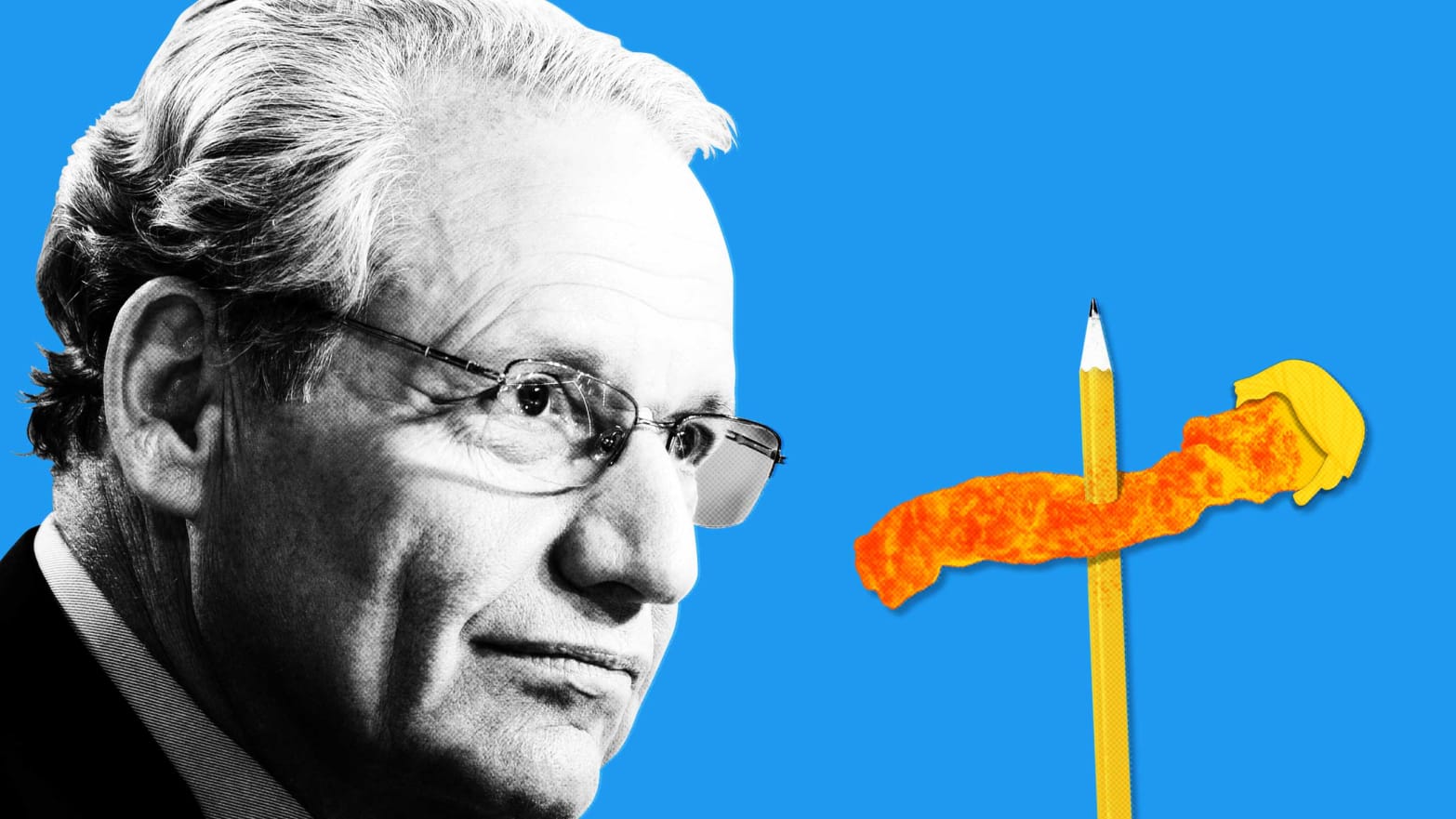Washington, D.C. may soon be littered with the political bodies of people who believed they could spin their way out of the impact of the new Bob Woodward book, Fear. I’ve been to the Washington rodeo enough times to know that Woodward’s methodical, grinding style of investigation doesn’t lend itself to escaping unscathed, especially for bad actors and loose cannons. Hell, as a young Department of Defense aide in 1990, I saw it up close when his book The Commanders led to the firing of USAF Chief of Staff Mike Dugan. He had tapes then, as he does now.
This week, it’s Donald Trump’s turn under Woodward’s political electron microscope, and the president’s hissy-fit reaction tells us how close Woodward’s work has struck. Trump knows his White House staff, up to and including his daughter, thinks he’s off the rails, a danger to himself and the country, and unable to execute the duties of a Waffle House manager much less the president of the United States.
Instantly, Washington has divided into familiar camps. For Trump fans, everyone else in the world is lying, and only Trump speaks the truth. For them, Woodward and his dozens of sources are fabulists, making it all up to harm the political fortunes of President Trump. For the rest of us, there’s the comforting knowledge that Trump’s White House just read the first draft of their history, and it isn’t pretty. From Trump’s insult-a-minute style to his profanity-laden regret at admitting he was wrong about Charlottesville, nothing here is flattering to a man deeply addicted to flattery.
Regardless of what Trump’s partisans will assert, Woodward’s scythe has cut through both Republican and Democratic administrations. When Woodward’s The Agenda told the story of the Clinton White House—including Hillary Clinton’s rasp-tongued reprimands of her feckless husband and his ideological dithering—the outraged denials were similar to what we see today. The Bush White House fought with Woodward over George Tenet’s “slam dunk” statement about Iraq’s WMDs. Bluster and denial were followed by, well, silence. Woodward works the details, gets the interviews, transcribes the tapes, and checks and cross-checks his sources’ accounts.
Is Woodward perfect? Of course not.
Journalists (like all of us) fall short, miss facts, and blow up small details. What’s remarkable is that with Woodward, as both chronicler and nemesis of Republican and Democrat administrations alike since 1972, we can look at the corpus of his investigative journalism as an impressive monument to the form.
Woodward once said of his work, “I believe there is a place for reporting that aspires to combine the thoroughness of history with the contemporaneity of journalism.” Occasional mistakes and disputed quotes aside, he’s delivered five decades of granular reporting from Washington’s inner sanctum, the Oval Office. Woodward conducts hundreds of hours of in-depth interviews with key players, relentlessly verifies statements with other key players, and builds a picture that captures the inner workings, relationships, and temperament in successive White House cultures.
In his exposé of Team Trump, much of Woodward’s reporting directly confirms other tales of a White House beset with chaos and crisis and led by a man his most loyal aides fear may start World War III. The stories that have leaked out in a constant flood since his inauguration are told here in greater detail than before, and this isn’t the first time we’ve heard tales of Mattis, Tillerson, and many of the other members of the shrinking “Axis of Adults” desperate to contain and constrain the Madness of King Donald. These men, now firmly in the Trump crosshairs, have taken extraordinary steps to preserve the power and standing of the United States from Trump's impulsive and dangerous temperament.
To witness Sarah Huckabee Sanders walking herself into the classic trap of D.C.’s most incompetent spinners on the topic of Woodward’s book was like watching someone stick a fork into a toaster. “This book is nothing more than fabricated stories, many by former disgruntled employees, told to make the president look bad,” her risible statement read. “Democrats and their allies in the media understand the president’s policies are working and with success like this, no one can beat him in 2020—not even close.” This last sentence of her lame rebuttal was mere filler, whistling past the graveyard of political history.
Here’s the problem for Trump supporters: Woodward’s recounting of the chaos, discord, and toxic atmosphere inside the White House, and of Trump’s erratic and dangerous behavior, echoes both other reporting and the clear reality. From serious journalism like Woodward’s, to Omarosa’s embittered but demonstrably insider take, to Fire and Fury, to my own book on Trump and his team, the story is the same. In this political Rashomon, the perspectives are so similar because the truth is so evident.
What we see, especially via Woodward, is a de facto execution of the 25th Amendment. Trump’s Cabinet members remove papers from his desk, ignore his more lunatic orders, make sure he’s out of the loop on consequential decisions, and run separate policies both at home and abroad to forestall the damage his ego and anger may cause to America’s reputation and security. None of this is pretty, and even those who oppose Trump will stir uneasily at the extra-constitutional risks taken by Trump’s staff to prevent even worse consequences.
The tale told in Fear is one of an administration led by a man who combines rampant personal instability, ravenous ego, and an inability to tell the truth even when it would help his legal and political standing. Trump’s allies and supporters will dismiss Woodward’s latest opus as “fake news” while the man they worship continues to prove the veteran journalist’s assertions every day.

